
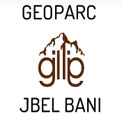

STRUCTURAL EVOLUTION OF THE ANTI-ATLAS DOMAIN :AN OVERVIEW pour Yves Missenard
The Anti-Atlas represents the most important segments of the major Pan-African (≈0.5Ga) belt system of North Africa. This orogen exposed in a series of sporadic SW–NEtrending outcrops over 700km across southern Morocco, and reach ≈150km wide in the central part, west of Ouarzazate (Figure G1 & G2).Scattered outcrops of related rocks are described in NW Algeria which indicate that the belt continues from SE Morocco southeastwards with a NW–SEtrend.
The Anti-Atlas orogen comprises two main sequences of rocks: a metamorphic basement of Palaeoproterozoic (2Ga) age and the Neoproterozoic rocks. The Palaeoproterozoic rocks form the northern margin of the West African Craton mainly outcropping in the Reguibate Shield in Mauritania And Algeria. The Palaeoproterozoic basement is exposed in a series of uplifted inliers (‘‘boutonnieres’’) surrounded by the Neoproterozoic rocks that were locally deformed with the basement during the Pan African Orogeny. with the during the Pan African Orogeny.
Paleoproterozoic rocks and Eburnian orogeny
The oldest rocks of Morocco, Archean in age3 Ga(Montero et al, 2014) crop out in the southernmost Reguibat E shield which formsthe northern part the West African Craton (WAC).Further north, in the Anti-Atlas chain, the basement units are Paleoproterozoic (Taznakht Group, former” PI”)cropping only in the south of the Anti-Atlas Major Fault (AAMF). They are metamorphic rocks (greenschist to amphibolite facies) intruded by peraluminous and calc-alkaline granitoids dated around 2Ga(Thomas et al, 2002).The corresponding tectono-magmatic and metamorphic events are assigned to the Eburnian/Birimian orogeny.
Neoproterozoic rocks and Pan-African orogeny
As everywhere in the WAC, Mesoproterozoic rocks are lacking in the Anti-Atlas. Neoproterozoic Formations overlie directly the Paleoproterozoic basement. The Neoproterozoic/Paleoproterozoic boundary is generallya tectonic contact (thrust, strike-slip or detachment faults), and seldom a stratigraphic contact (Tizi n’Taghatine). Globally, the Neoproterozoic formations record three main stages of the Pan-African cycle (figureG4):
I .The early Neoproterozoic platform development is marked by the accumulation of thousands of meters of quartzites and stromatolitic limestones (Taghdoute Group, former “PII”), intruded by doleritic dykes and gabbroic intrusions. These rocks are associated with the rifting of the WAC margin, broadly contemporaneous with the oceanic accretion further north (760 Ma), witnessed along the AAMF by the Bou Azzer-El Graara and Siroua ophiolitic sequences (Bou Azzer Group).
II .Oceanic closure and subsequent Pan-African collision are associated with oceanic subduction along the northern margin of the WAC, ending with the accretion of oceanic arc formations (figureG4).The reported “blueschist facies” mineral associations in the Bou Azzer inlier are controversial. The polarity of the subduction remains also matter of debates; the same is true for the real location of the northern edge of the WAC. The oblique Pan-African collision(655 Ma to 640 Ma) generated south-verging thrust sheets onto the cratonic margin. South of the AAMF, the main Pan-African phase is recorded by low grade recrystallizations, synmetamorphic folds and various ductile and brittle structures in the Taghdout Group series.
III The Late to Post Pan-African extensional event is recorded by the extensive volcanic and volcano clastic series of the Ouarzazate Group (former “PIII”, 580 Ma to 560Ma), interbedded with subaerial to lacustrine deposits, which unconformably overlie the Eburnian and/or Pan-African basement units. The Ouarzazate Group shows abrupt variations of thickness and facies controlled by extensional tectonic activity. Various high-K calc-alkaline to alkaline plutons emplaced within the Ouarzazate Group, coeval with the volcanic rocks of comparable chemistry.
FigureG4: Generalized lithostratigraphic column for the Anti-Atlas Pan-African orogen. “PI” = “XI”, etc. are the classical stratigraphic symbols used on Anti-Atlas geological maps. HKCA: High-K calc-alkaline (granitoids) after Thomas et al. (2004), Gasquet et al. (2005) and Liégeois et al.2006 in Youbi et al., 2013
Source web par sociedadgeologica.es
Les articles en relation

Les Eco systèmes des zones arides et semi arides
Les bioclimats du Maroc De par sa situation et composition géographiques, le Maroc présente des bioclimats ou zones climatiques très différentes. Tout d’abord, il est limité par une côte
Savoir plus...
Raie pastenague
Raie pastenague La raie pastenague désigne plusieurs espèces de sélaciens de la famille des Dasyatidés, reconnaissables à une queue en forme de fouet, ce qui leur vaut ce nom. Mangeuses de petits po
Savoir plus...
Les sept couches de la terre
Quand les scientifiques ont commencé à explorer les profondeurs de la terre et à fournir les efforts pour connaître les secrets de sa structure et de sa composition, ils ont constaté que les mythes qui
Savoir plus...
Planète extrême : le huarango, un arbre millénaire menacé d’extinction
Planète extrême : le huarango, un arbre millénaire menacé d’extinction Ce nouvel extrait de Pérou, Planète Extrême, nous emmène à la découverte d'un arbre
Savoir plus...
Paléontologie : De nouvelles trouvailles à Fezouata
Paléontologie : De nouvelles trouvailles à Fezouata Les formations géologiques de Fezouata, situées au nord de Zagora, ont révélé de nouveaux trésors archéologiques. Le 1
Savoir plus...
Lérot du Maroc
Lérot du Maroc Le lérot (Eliomys quercinus) est un petit mammifère nocturne masqué d’environ 60 à 140 grammes et ne dépassant pas la quinzaine de centimètres, sans compter la que
Savoir plus...
Quel est le plus grand arbre du monde ?
Quel est le plus grand arbre du monde ? Découvrez quel est l'arbre le plus haut du monde et aussi quel est celui qui a le plus grand volume. L'arbre le plus grand du monde est le séquoia à feuilles d&#
Savoir plus...
Sur la vague du nouveau Maroc
Sur la vague du nouveau Maroc Mettre le pied une deuxième fois sur le sol marocain répondait pour nous cinq à une soif de mieux connaître ce pays qui nous hante et nous attire avec ses mille couleurs, ses s
Savoir plus...
Tata - Anti Atlas - Couleurs de la Porte du Sud (Géoparc Jbel Bani)
Tata - Anti Atlas - Couleurs de la Porte du Sud (Géoparc Jbel Bani) Que l'on s'y rende à partir de Marrakech, Agadir, Ouarzazate, on sera toujours surpris, quelque soit la saison, de la diversité des coul
Savoir plus...
A plate tectonic evolution of the Anti-Atlas on a global scale
A plate tectonic evolution of the Anti-Atlas on a global scale DR.Hervé Rezeau, DR.Cyril Chelle-Michou & DR.Michael Calder SEG Student Chapter of Geneva (Switzerland) &n
Savoir plus...
Déserts du Maroc
Si le Maroc, dont l’échine dorsale semble être cet Atlas majestueux qui le parcourt, est un pays montagneux largement ouvert sur la mer et bordé de grandes plaines côtières, le désert tient
Savoir plus...
GEODYNAMIC EVOLUTION OF THE PAN-AFRICAN OROGENY
GEODYNAMIC EVOLUTION OF THE PAN-AFRICAN OROGENY Prof. Hervé Rezeau, Prof. Cyril Chelle-Michou & Prof. Michael Calder SEG Student Chapter of Geneva (Switzerlan
Savoir plus...Les tags en relation
En savoir plus sur " Géologie et TSGJB - AMDGJB ! "
Consulter les vidéos de " Géologie et TSGJB - AMDGJB ! " Consulter les photos de " Géologie et TSGJB - AMDGJB ! " Consulter les publications de " Géologie et TSGJB - AMDGJB ! " Consulter les éditions de " Géologie et TSGJB - AMDGJB ! " Consulter les communications de " Géologie et TSGJB - AMDGJB ! "Recherche du site
Recherche avancée / SpécifiqueVulgarisation à la géologie
Qu'est ce que les sciences de la terre: vulgarisation Qu'est ce que la géologie ? Géologie et TSGJB - AMDGJB !
Géoparc et Recherche Scientifique
Le coins de l’étudiant
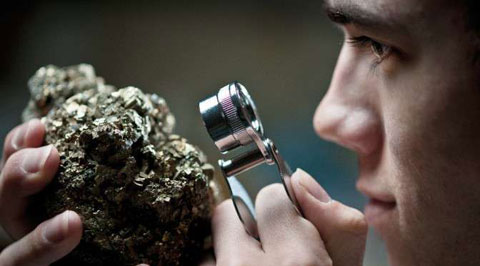

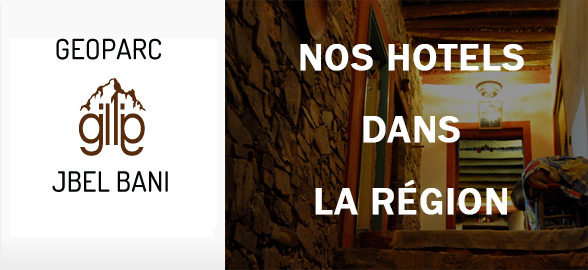
Blog Géoparc Jbel Bani
Dictionnaire scientifique
Plus de 123.000 mots scientifiques
Les publications
Géo parc Jbel Bani
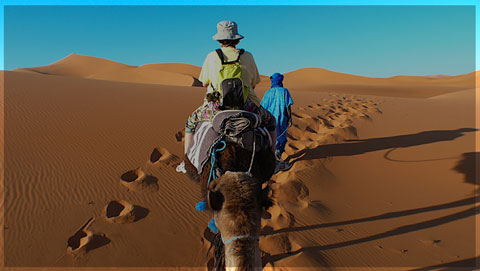
Circuits & excursions touristiques
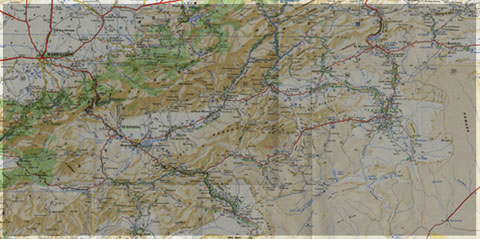
cartothéques
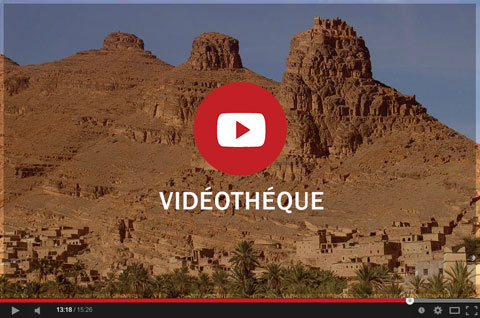
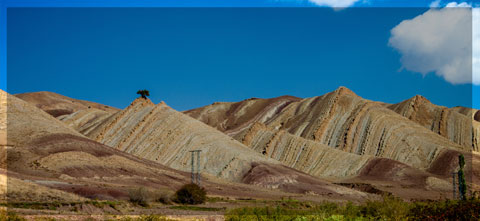
Photothéques
Publications & éditions



